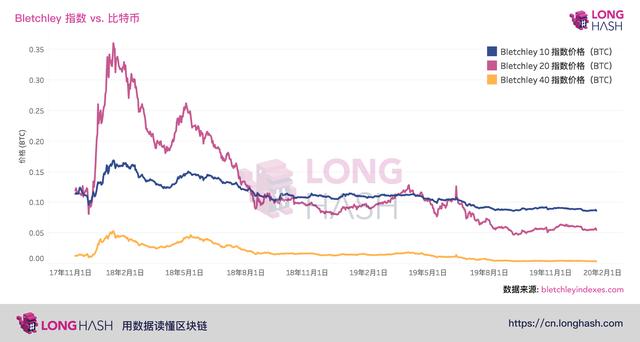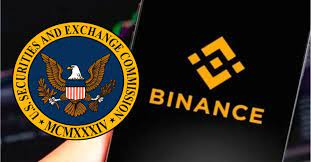Analysis: Three reasons why altcoin has failed to disrupt Bitcoin
Source: LongHash
When people first learn about bitcoin, they usually feel that they have missed the opportunity to catch up with the boat that has seen the price of crypto assets soar over the past decade. This is, at least to a certain extent, the reason why many people are interested in whether there is an altcoin that can eventually overthrow Bitcoin and become the world's largest digital asset.
The altcoin will give newcomers a feeling that instead of living a campaign that in their opinion has little room for early development, it is better to seize the opportunity to take advantage of those new projects. However, no altcoin has yet to overthrow their king.
Leaving aside the obvious advantages of bitcoin, the key challenges facing altcoins include the network effect of bitcoin as a currency, the lack of decentralization, and the fact that the bitcoin network can evolve. Now, let's take a closer look at three reasons why altcoins have so far failed to take the top spot in Bitcoin.
- Sino-US competition escalates, US wants to launch "digital dollar" against DCEP
- December panoramic scan of data on the Bitcoin chain: exchange giants article
- Bitcoin just hit another new year high in 2020. The next target is $ 10,000?
The network effect of Bitcoin as a currency
From the beginning, altcoins faced a serious problem, because overwhelmingly more people prefer to use more reputation, more liquidity, more stability (relatively speaking), more accessibility than any other cryptocurrency. Letter of Bitcoin.
Network effects are extremely important for currencies, perhaps even more so for social media. When both parties to a transaction are using the same currency network, it is not only the Bitcoin users who can more easily conduct transactions. As price volatility gradually decreases with wider adoption, Bitcoin has also become a more reliable means of value storage. As we reported last year, over time, the Bitcoin network has gained more and more users, and its currency price volatility has continued to decrease.
According to a recent report from Bloomberg, as a means of value storage, Bitcoin has clearly won the battle with the adoption rate of other cryptocurrencies. Altcoins must be sufficiently innovative to be able to persuade users to hold and use a new currency that is not as convincing as Bitcoin.
The chart below illustrates the dilemma of the altcoin market over the past few years. The Bletchley Index tracks the value of a specific crypto asset portfolio. The Bletchley 10 index tracks the top ten crypto assets by market capitalization (including Bitcoin), Bletchley 20 tracks twenty medium-sized crypto assets, and Bletchley 40 tracks 40 small crypto assets. In the chart below, we plot the performance of the Bletchley 10, Bletchley 20 and Bletchley 40 Indexes against Bitcoin.

Credible decentralization and censorship resistance
The credibility of the value proposition of Bitcoin as a decentralized, non-political, and uncontrolled digital asset is also beneficial to the network effect of Bitcoin. As demonstrated by the failure of the SegWit2x project, Bitcoin is resistant to changes that cannot achieve broad consensus, and it is this resistance that protects the system's unique and precious characteristics, including Bitcoin's monetary policy.
SegWit is essentially a patch that fixes transaction scalability issues, which is extremely beneficial for creating a better environment for the development of Layer 2 protocols such as Lightning Network. Although SegWit has largely received the support of Bitcoin users, some influential members have refused to accept this change, which combines an upgrade and a hard fork of block expansion.
In order to prove their value, the innovation of cryptocurrencies must be based on a trusted decentralized network. However, no altcoin has proven itself like Bitcoin in this regard (in the case of SegWit2x). If users can easily gather the hearts of a cryptocurrency network or control the network, then there is no guarantee that the predictable issuance policy of this asset will not change. For an asset with "digital gold" whose monetary policy is not affected by politics, this issue is crucial to its success.
Some projects in the crypto industry, such as Ripple's XRP, have such a low degree of decentralization that it is doubtful whether such assets can be classified into the same category.
Bitcoin network is witnessing innovation
Even though Bitcoin is still resistant to tampering, it is also open to innovation. Although some may think that the relatively slow pace of change of the Bitcoin network has made it an "old antique" in crypto technology, in fact new features are protecting the first two key factors-network effects and decentralization-in a way that Way is added to the world's most popular cryptocurrency network. In addition, because it can be developed on the second layer, such as the Lightning Network, Bitcoin is also evolving faster. This is because changes that occur on the second layer do not require consensus among all Bitcoin nodes.
Those most popular features in altcoins have also appeared on the Bitcoin network, such as smart contracts, privacy and micropayments.
In the field of smart contracts, Bitcoin is expected to gain richer functionality through the integration of Tapscript . Furthermore, the integration of the Simplicity language will give smart contract developers greater flexibility. There is also the RSK sidechain, which is actually a cloned version of Ethereum, but uses Bitcoin instead of Ether as its base token.
In terms of privacy, CoinJoin has implemented operations such as the JoinMarket and ZeroLink protocols as a standard for maximizing privacy in the use of Bitcoin. In the long run, transferring more transactions from the underlying blockchain to second-tier networks such as the Lightning Network and sidechains should be able to help users avoid many of the privacy issues faced when using a public-chain-based currency system.
A key goal of Bitcoin network development is to consider the long-term impact of any potential changes to the network. Payment is a good example of this goal. The SegWit patch is used to implement a second-level protocol that can bring faster and cheaper payments without breaking the essential nature of the underlying Bitcoin protocol's license-free nature, rather than simply achieving larger capacity through block expansion. Transaction capacity.
A key issue in altcoin innovation is that the shortcomings of new features are often ignored or even completely ignored. Smart contract platforms have problems with scalability and lack formal verification. Many privacy-focused altcoins implement solutions that may not be extensible or involve experimental cryptography. At the same time, public chains that focus on improving TPS are at the cost of higher node operating costs, which hurts its decentralization to a certain extent. Those who participate in the Bitcoin development process often focus on how to avoid these hidden dangers when introducing these features to the Bitcoin platform.
Although altcoins can seize the headlines by introducing new features as soon as possible and enjoy the benefits of short-term price increases, due to long-term unsustainability caused by problems such as rising costs of operating full nodes, most of these solutions are not suitable for Centralized system. Observing altcoin experiments with real gold and silver adventures is certainly interesting, but many of these systems may just be a "testnet" of those functions that were eventually implemented in the Bitcoin network.
LongHash , read the blockchain with data.
We will continue to update Blocking; if you have any questions or suggestions, please contact us!
Was this article helpful?
93 out of 132 found this helpful
Related articles
- Opinion | Under turmoil, is hedging a Bitcoin script?
- 5000 words on Austrian economics: love of Austrianism and blockchain is actually love of freedom
- How to give blockchain applications to the community? Here is a manual for progressive decentralization
- Depth | Inspiration from distributed intelligence brought by Ethereum 2.0
- Babbitt Column | Deng Jianpeng: The "gaseous" trend of blockchain challenges the government's supervision ability, and the rule of law supervision requires great wisdom
- When Tesla becomes a Bitcoin node, is it reliable?
- Quick Tour of Ethereum 2.0 Update (7): Phase 1.5 Means Ethereum Says Goodbye to PoW






